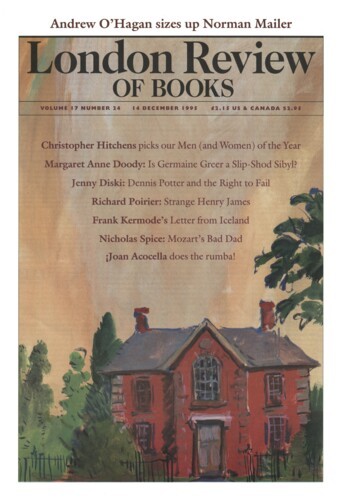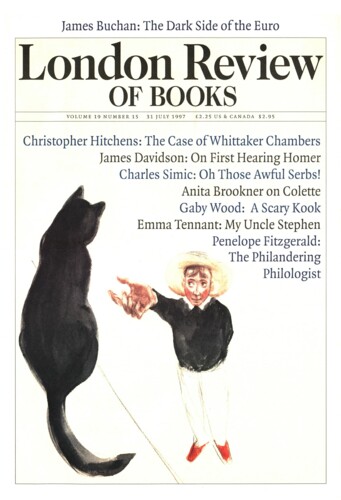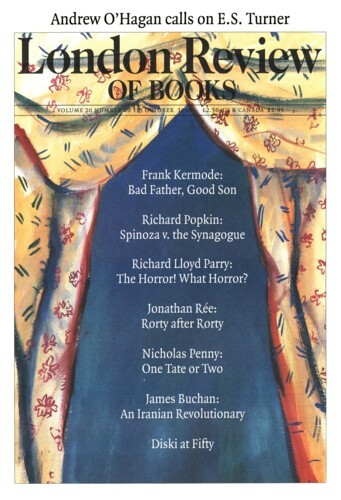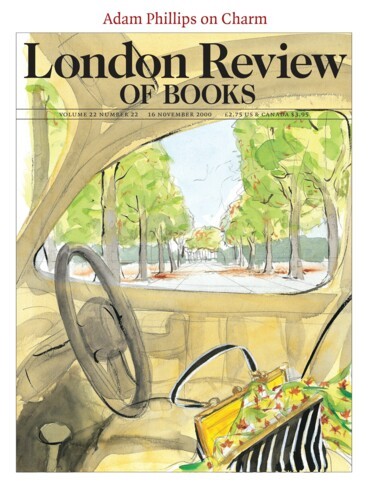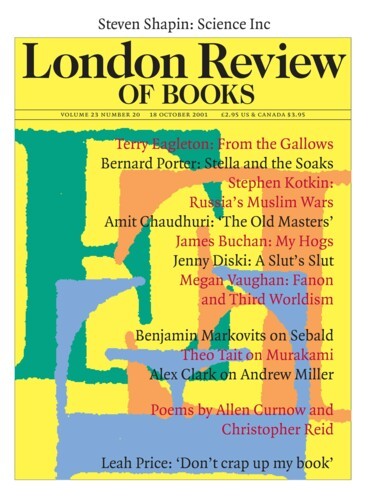Presto!
James Buchan, 14 December 1995
In Book IV of The Wealth of Nations, a vantage at which you have already left the economists shivering and huddled in their sleeping bags a thousand feet below, there is a sentence that lets you peer right into Adam Smith’s world. He is talking about Cameron of Lochiel, whose decision, against his better judgment, to come out for Prince Charles Edward Stuart in 1745 won the clans for the Pretender and doomed the ancient culture of the Highlands to extinction. ‘That gentleman, whose rent never exceeded five hundred pounds a year, carried, in 1745, eight hundred of his own people into the rebellion with him.’
